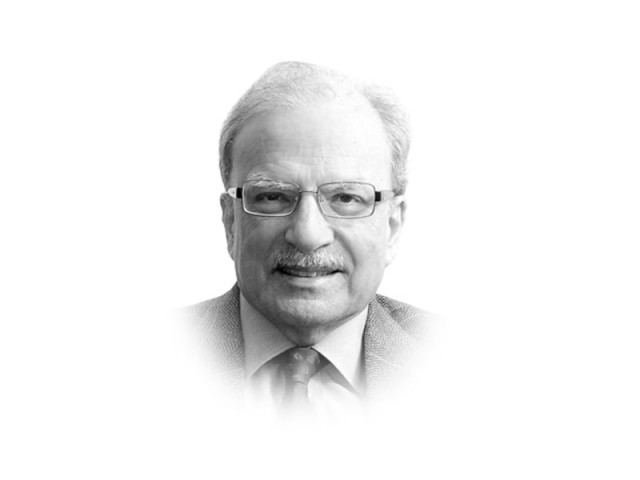Reviving the crumbling state
While the state is becoming increasingly dysfunctional, political evolution since 2008 offers some hope.

For several years now, economists have been saying that it takes more than capital and labour to produce growth. Institutions are one of those things that need to be brought into the development equation. When economists talk about institutions, they don’t necessarily mean organisations with well-defined structures and business plans. They mean rules, both formal and informal that people follow in order to deal with one another. They also mean enforcement mechanisms, when established rules are defied. A legal system that has well-written laws and courts, and a system of regulations that are overseen by their own organisational structures, it ensures compliance. Culture and societal norms ensure compliance of informal rules. One example of the latter is what anthropologists call “vartan bhanji” — the system that enforces giving, in order to celebrate or observe life’s many passages. For instance, people are expected to give on weddings keeping in mind what they have received themselves.
The problem arises when informal rules begin to overwhelm those that are formal; when culture begins to mean more than formal laws and regulations. This is one of the more serious problems Pakistan faces today. It is slipping back from formality to informality. Political scientists have begun to emphasise that political development is not a linear, unidirectional process. Development happens when formal rules become more important for transactions than those that are informal. In that case, political decay rather than political development takes place.
If the preceding sounds too negative, let me bring into this discussion something that is positive. There is no doubt that in spite of the political roller coaster we have been riding since independence was gained 65 years ago, there is now some forward movement. That the military, by repeatedly intervening in the political process, set back political development seems to have withdrawn to the barracks. It is not being asked to come back and save the country and provide the citizens what they want from the state. There is now consensus in the country that the only solution to the many problems that must be dealt with is through the political process.
There is also consensus that the state must function at several different levels — the federal, the provincial and the local. The Eighteenth Amendment to the Constitution has provided the framework that brings the state one step closer to the people. Powerful political leaders in the past and the military with a strong preference for centralised command and control had established styles of governance that made the state very distant from the people. However, the full impact of the amendment has as yet to be felt but it will generally be positive. However, the devolution must not stop at the provincial level. It must continue down to the local levels. Many services can only be provided effectively and efficiently when those who are receiving them can literally see who are supplying them. This is one reason why institutional economists have begun to emphasise what they call ‘localisation’ in the process of governance.
The third positive is the increasing power that is being claimed by institutions that can provide, what in the American system are called, ‘checks and balances’. These institutions have to keep in check and in balance the enormous amount of power all political systems give to the government’s executive branch. This usually comes from a combination of the legislative and judicial branches. In Pakistan, however, the legislature remains weak, in part, because political parties remain seriously underdeveloped. Legislative weakness has brought the judiciary forward filling the gap that exits for all to see. But there is another check on all branches of government that has assumed an increasing role. This is the power of the civil society, often expressed by the use of the ‘street’. If there is a lesson to be drawn from the Arab Spring, it is this: the citizenry will push back after a certain point has been reached. There is a reason why all the deprivation that Pakistan’s citizens have experienced for the last several months has not caused an explosion in the street. The reason is that people have developed some confidence in the political process.
The main conclusion that I have to offer is that while the state is becoming increasingly dysfunctional, political evolution since 2008 offers some hope. People must demand solutions for rebuilding the crumbling state from the political parties that will compete in the coming elections.
Published in The Express Tribune, September 10th, 2012.















COMMENTS
Comments are moderated and generally will be posted if they are on-topic and not abusive.
For more information, please see our Comments FAQ